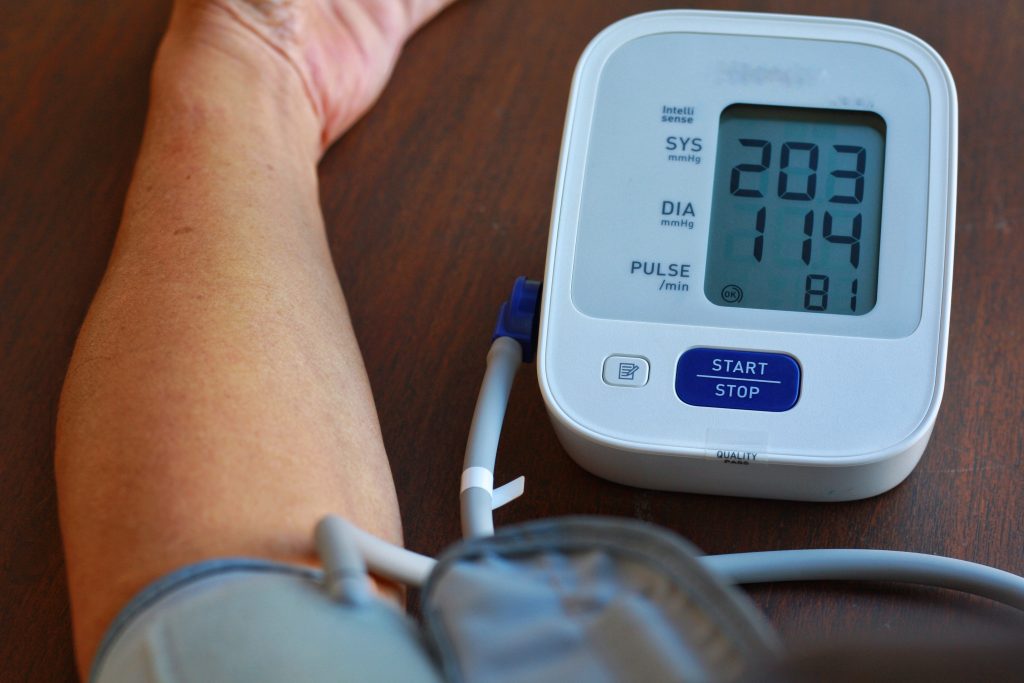
Hypertension, often known as high blood pressure, is a common disease that affects many people in the United States, with over 3 million cases reported each year. This disease typically remains undiagnosed until it causes serious side effects and necessitates a visit to the doctor. Like renal disease (another silent condition), high blood pressure can have serious consequences if not treated early.
High Blood Pressure and Your Kidneys
Our kidneys have tiny vessels that clean blood. In the case of high blood pressure, the blood passes through these vessels with very high force. This pressure on the vessels is harmful to your kidneys and becomes the reason for various kidney diseases. Improperly working kidneys or kidney disease can also affect your blood pressure. Healthy kidneys help regulate blood pressure by removing waste and excess water. A damaged kidney cannot clean the blood in your body and remains unable to stabilize normal blood pressure. So both our heart and kidneys’ proper working depend heavily on each other.
How Can We Diagnose Kidney Disease?
High blood pressure’s effects on kidneys are not easy to detect. For a diagnosis, doctors use specific laboratory tests that can tell whether your kidney is properly eliminating waste in your body. Laboratory tests, including blood urea nitrogen and serum creatinine, are performed to demonstrate kidney damage.
Symptoms of Kidney Disease
Here are some common symptoms of kidney disease:
- Urinating more frequently than usual (usually at night)
- Swollen feet or ankles
- Muscle cramps
- Noticeable appetite changes
- Blood in urine
- Excessive bubbles in urine
- Dry or itchy skin
Ways to Prevent Kidney Disease By Hypertension?
It may take many years before you notice the effects of high blood pressure on your kidneys. In case you are already suffering from kidney problems, controlling your blood pressure is a critical step toward recovery. Below are a few ways you can get on the right track:
- Maintain healthy eating habits
- Lessen your salt intake
- Control sugar intake
- Limit oily foods and maintain your cholesterol level
- Eliminate tobacco products
- Maintain a healthy weight
- Avoid alcoholic drinks
- Keep physically active
Maintaining a Healthy Diet
Maintaining a healthy diet creates positive overall effects within your body. We recommend choosing foods with less sodium and bad fats. Better food choices will help keep your blood pressure within healthy normal ranges.
Checking Your Blood Pressure
If you have a digital device or machine, checking your blood pressure daily will be much easier. Monitoring blood pressure allows you to see if it is normal or rising, and you may take action accordingly. We recommend getting your blood pressure checked by a physician regularly.
Normal blood pressure remains around 120 over 80. If this number goes up, it means your blood pressure is increasing. Be sure to visit your doctor if you’re experiencing abnormal changes in your blood pressure.
Controlling Your Cholesterol
Having high cholesterol and blood pressure leads to kidney disease and heart issues. Kidney disease worsens if you do not maintain healthy cholesterol levels. So be careful in this regard.
Eliminating Smoking and Tobacco Use
In the United States, more than 16 million adults suffer from a condition caused by smoking cigarettes. Smoking-related ailments claim the lives of half a million people each year. Tobacco chewing and smoking can exacerbate high blood pressure, renal problems, and heart attacks. We highly recommend the elimination of tobacco use.
Avoiding Alcoholic Drinks
Drinking alcohol often leads to high blood pressure. Avoiding alcoholic drinks helps to prevent heart, kidney, and liver problems as well as other alcohol-related diseases.
Maintaining a Healthy Weight and Staying Active
An active lifestyle can help you maintain healthy blood pressure and cholesterol levels. Exercise can help lower triglyceride levels while also increasing HDL (good cholesterol). LDL (bad cholesterol) levels are reduced when exercise is combined with weight loss and dietary adjustments.
Talk to a Specialist Today!
Don’t overlook any of the symptoms listed above, especially if you have a history of diabetes or high blood pressure.
South Texas Renal Care Group specializes in treating your kidneys to keep them functioning. We’ll teach you about your health and how to keep your kidneys from failing.
Are you in need of help? Please contact us at (210) 212-8622. We can set up a consultation with one of our specialists to discuss your issues as soon as possible.
